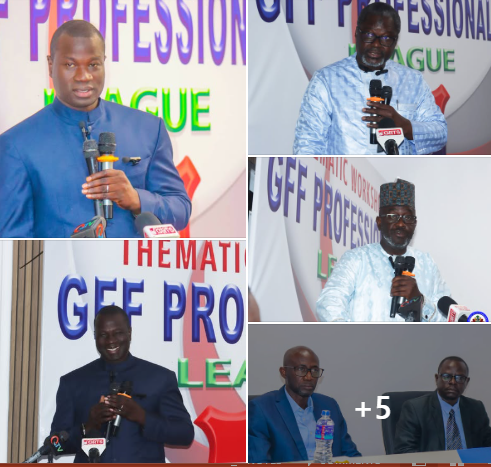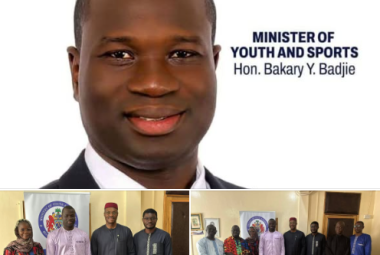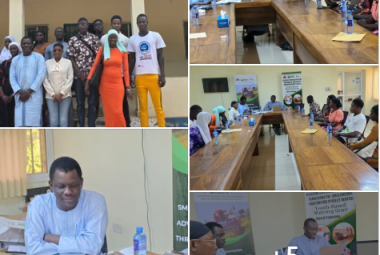Honourable Bakary Y. Badjie, Minister of Youth and Sports, has reaffirmed the Gambia Government’s unwavering commitment to transforming football into a sustainable, professional industry, calling it a national priority during his keynote address at today’s Stakeholder Dialogue on the Professionalization of Football held at a local Hotel in Kotu .
The event, organized by Gambia Football Federation (GFF), brought together key players in the football ecosystem including club executives, coaches, sponsors, and development partners in a bid to shape a unified roadmap for a competitive national league.
“Football is more than just a game,” the Minister declared. “It is a tool for social cohesion, youth empowerment, job creation, and national pride.
Despite our immense talent and passion, our league remains underdeveloped. That must change and it starts with strategic collaboration.”
Minister Badjie underscored that the Ministry’s new National Sports Policy (2024–2034) aligns directly with the goals of today’s dialogue, outlining support for talent development, governance reforms, infrastructure investment, and public-private partnerships.
He also emphasized the importance of the GFF’s upcoming Business Plan, which will serve as the foundation for a professional league model grounded in accountability, financial sustainability, and institutional growth. “A well-defined plan will build investor confidence and provide a clear roadmap to transition from ad hoc operations to a competitive, market-driven model,” he stated.
Minister announced that the National Sports Development Fund aimed at financing sports growth nationwide has been included in the upcoming National Sports Bill, to be presented before the National Assembly.
Other key government commitments highlighted include upgrading and constructing new sporting facilities across the country, promoting gender equity in football and across all sports, supporting sports data and research for evidence-based planning, enhancing international cooperation and capacity building.
Minister Badjie urged stakeholders to break silos and “challenge assumptions” to ensure the final roadmap reflects all voices. “Gambian football must be shaped by those who are committed, engaged, and willing to work together,” he said.
The dialogue is expected to generate vital input for the development of a strategic and inclusive national football model ushering in a new era for Gambian football, one that is professional, resilient, and proudly Gambian.







